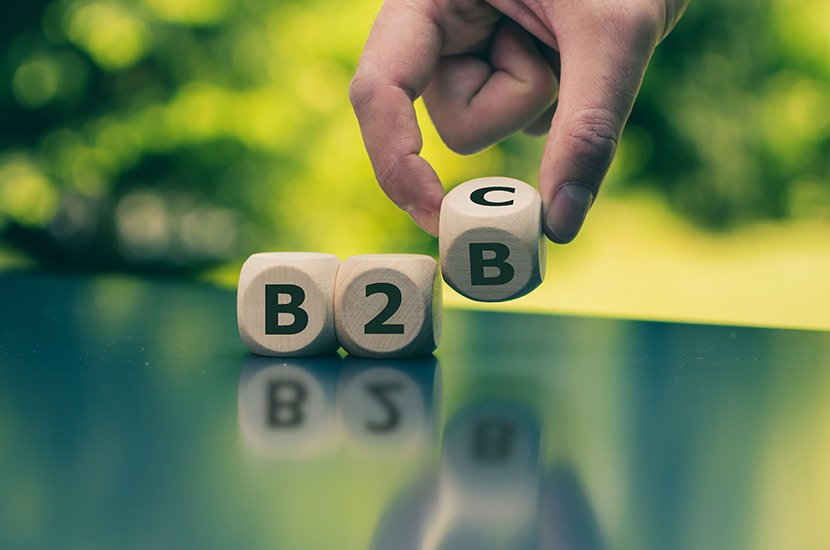In today’s dynamic business environment, the distinction between business-to-consumer (B2C) and business-to-business (B2B) marketing is more than just a matter of whom you’re selling to. It represents a fundamental shift in approach, messaging, and strategy, tailored to meet each target audience’s unique needs and decision-making processes. Understanding these nuances is crucial for marketers looking to develop effective campaigns that reach and resonate deeply with their intended consumers or businesses. This differentiation is not merely operational but strategic, influencing every aspect of marketing communication, product development, and customer engagement.
The Evolution of Market Dynamics
The landscape of business is constantly evolving, driven by technological advancements, shifting consumer expectations, and the relentless pace of innovation. In this ever-changing world, adapting and tailoring marketing strategies to the specific characteristics of B2C or B2B audiences can set a brand apart, enabling it to thrive amidst competition.
Let’s unpack each to understand the difference between them better.
B2C Marketing: Making Personal Connections
B2C marketing is all about engaging directly with individual consumers. These are the folks who use your products or services in their day-to-day lives. The essence of B2C marketing lies in creating a personal and direct connection, tapping into the emotional and aspirational aspects that drive consumers’ purchasing decisions.
What Makes B2C Tick
- Emotional Connection: B2C marketing thrives on creating a bond with consumers through storytelling and a compelling brand persona. It’s about striking a chord that resonates on a personal level, turning interest into desire and loyalty.
- Tailored Messages: Knowing your audience inside out allows for laser-focused strategies that hit the mark. B2C marketing uses insights from understanding the customer’s needs and data analytics to craft messages that appeal directly to consumers’ needs, preferences, and lifestyle choices.
- Quick Decisions: The journey from discovering a product to clicking “buy” is typically short and sweet in the B2C world. Strategies aim to make this process as seamless as possible, ensuring that consumers can make quick decisions without second-guessing.
- Wide Reach: Finding consumers where they hang out is crucial. B2C marketing casts a wider net but you are still not fishing in the whole ocean, utilizing a mix of channels like social media, online ads, and email to engage with potential buyers vibrantly and interactively. For example, you are looking for groups of potential buyers not specific businesses.
B2B Marketing: Building Professional Relationships
On the flip side, B2B marketing is about fostering relationships between businesses. This realm is characterized by transactions that enable companies to improve their operations, enhance their production, or offer something valuable to their customers. B2B marketing demands a deep dive into the business needs, industry standards, and the value proposition that resonates with a professional audience.
The Core of B2B Marketing
- Value-Driven Strategies: B2B marketing is all about the logic of the offer. It focuses on how a product or service can solve a problem, boost efficiency, or contribute to the bottom line, appealing to the rational side of decision-making. Less emotion. More value.
- Complex Sales Cycles: Unlike B2C, B2B purchases often involve a series of decisions made by different stakeholders. Marketing strategies here need to be patient, informative, and flexible to cater to businesses’ varying needs and timelines.
- Niche Targeting: B2B products or services are usually more specialized and designed to meet very specific industry needs. This requires marketing messages that are not just informed but also highly technical and able to communicate complex benefits clearly.
- Personal Touch: Building and maintaining strong relationships is at the heart of B2B marketing. Through personalized communication, detailed presentations, and targeted content, B2B marketers work to establish trust and showcase their value on a more individual level.
Breaking It Down
While both B2C and B2B marketing share the ultimate goal of connecting products with end-users, their strategies, channels, and engagement methods vary greatly:
- Audience Focus: B2C aims at individual consumers’ hearts, while B2B targets the rational minds of businesses.
- Decision-Making: Quick, emotional decisions characterize B2C, whereas B2B decisions are slower, based on detailed analysis and logic.
- Communication Style: B2C spreads its message farther and wider, seeking to captivate and inspire, while B2B takes a more direct and personalized approach, aiming to inform and build relationships.
A Strategic Imperative
Understanding the nuanced differences between B2C and B2B marketing is beneficial; it’s a strategic imperative for businesses looking to stay competitive and relevant in a rapidly changing marketplace. By tailoring strategies to their target audience’s unique needs and behaviors, companies can more effectively bridge the gap between their products or services and the end-users, fostering deeper connections and driving sustained growth. This exploration is a stepping stone towards a more nuanced, strategic approach to marketing that appreciates the complexities of consumer and business markets alike.







Leave A Comment
You must be logged in to post a comment.